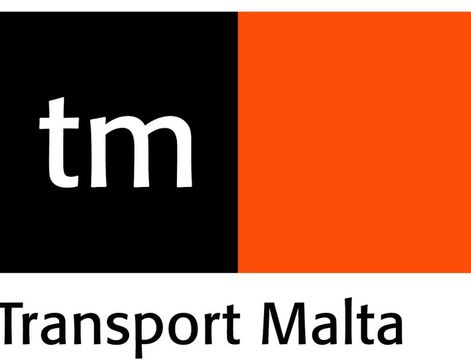
Prometeus Final Conference
Prometeus will hold its final conference on April 28th 2021
Electromobility has been identified as a priority within EU policies being a sustainable, low-carbon alternative for transport. However, poor availability of dedicated infrastructures and low user awareness are considered as major barriers to be addressed.
PROMETEUS aims at overcoming such barriers and promoting e-mobility in the five partner *Regions of Malta (Lead Partner Transport Malta), Carinthia (Austria), Lazio (Italy), Prešov (Slovakia) and Castile and Leon (Spain), and with the advisory partner role of Poliedra (Milan, Italy), through the improvement of policy instruments linked to Structural Funds, addressing the transition to a low-carbon economy (which is coherent with specific objective 3.1 of the Interreg Europe programme).
Each of the policy instruments contains an investment priority suitable to be improved integrating e-mobility promotion. Depending on the instrument, such investment priorities are linked to one of the following thematic objectives: “TO4. Supporting the shift towards a low-carbon economy in all sectors” (ROP of Lazio, M13 of Austria), “TO7. Promoting sustainable transport and improving network infrastructures” (OP of Malta, iROP of Slovakia), “TO1. Strengthening research, technological development and innovation” (OP of Castile and Leon).
The policy instruments will be improved through funding of new projects or an improved governance. Based on a preliminary assessments, promising areas of action include: integration of e-mobility in strategies/plans/programmes, incentives, awareness raising, research and innovation.
A structured interregional learning process will involve partners and groups of regional stakeholders that will be involved throughout the life of the project and will co-design the five regional Action Plans for the improvement of the policy instruments dedicated to e-mobility.
The main phases of the project can be described as follows:
- Analysis of the specific territorial contexts, in terms of electromobility preparedness and needs
- Identification and benchmark of the good practices, to be exchanged among partners
- Drawing up of the regional action plans for the improvement of the policy instruments addressed in each region
- Development of a LogBook, a web-based monitoring tool, where the progresses of the regional action plans will be recorded and monitored.
Visit also our Facebook page: www.facebook.com/ProjectPrometeus/
€1,389,765.00
Low-carbon economy
PROMETEUS focuses on the Priority Axis 7 “Shifting towards a more low-carbon transport sector” of the Cohesion Fund 2014-2020 Operational Programme I of Malta (OPI), and in particular on Investment Priority 7c - Developing and improving environmentally-friendly (including low noise) and low-carbon transport systems, including inland waterways and maritime transport, ports, multimodal links and airport infrastructure, in order to promote sustainable regional and local mobility. The OPI as delineated in its foreword shall be in line with the National Transport Strategy (NTS). PROMETEUS shall tackle the themes of traffic emissions and high vehicle ownership by proposing action plans to further pave the way for increased uptake of electric modes of transport. The policy instrument addressed It is important to further focus OPI (7c) on innovative technologies and promotion of sustainable means of transport in order to reduce greenhouse gas emission, pollution and noise.
In PROMETEUS we want to focus on the “Investment priority 4e promote policies to reduce CO2 emissions for all regions - Specific objective 1: To contribute to reducing CO2 emissions by developing new local or regional strategies” of the EFRE-Programm Investitionen in Wachstum und Beschäftigung Österreich 2014-2020 which, among its measures, includes “M13_CO2_IP4e_MN1 - The Lokale und regionale Strategien für Energieeffizienz und nachhaltige Mobilität” (Local and regional strategy for power efficiency and sustainable mobility). 12 Mio. Euro from EFRE Programm are allocated to M13_CO2_IP4e_MN1.
Main focus is the development and implementation of a consulting framework regarding alternative mobility systems and energy efficiency for and from the public hand. This instrument supports the usage of innovative technologies in transport in the same way than the refurbishing of buildings. Main focus is consulting and developing of strategies. In the field of transport the main target is the CO2 and other emissions (NOx, PM10) reduction by bringing the customer to other mobility modes with less CO2 emission or if this is not possible to replace the used vehicle with a more CO2 friendly one.
With this instrument the public hand has a tool to support this change away from CO2 emissions in transport. In the implementation of the strategy, the theme of electro-mobility should be further developed and new regional mobility-concepts should be prepared.
PROMETEUS will focus on TO1 - Research and innovation. The specific goals of the 2014-2020 ERDF ROP of Castilla - León as regards TO1 are to promote innovation as an engine for regional development that contributes to a change of the production model of Castile and León. The government of Castile and León has detected needs and weaknesses with a significant weight in the whole region.
The RIS3 of Castilla - León 2014-2020 is conceived as an instrument to increase the competitiveness of the activities in which Castile and León is specialized. The second priority of the RIS3 is to look for a productive efficiency in transport sectors such as Automobile manufacturing and Aeronautics, making materials and components the keys to leadership and sustainability. In addition, it specifies “efficient and sustainable transport” as field performance in R&D.
We believe that, besides strictly technological projects, the instrument needs to incorporate a wider range of practical solutions, especially as regards the promotion of electro-mobility.
The ROP ERDF 2014-2020, priority axis IV, investment priority 4.6 – Increasing sustainable mobility in urban areas, foresees 3 main actions:
• Action 4.6.1 supports improvement and realization of infrastructure and interchange nodes aimed at increasing collective mobility and eco-friendly freight distribution, and related transport systems, in line with the passenger transportation plan of the metropolitan area of Rome.
• Action 4.6.2 (Interventions for urban sustainable mobility, also encouraging the use of low-impact transport systems) foresees the purchase of buses with high environmental efficiency, either electric or powered by natural gas, to be used only in the urban and metropolitan area of Rome and within the framework of integrated urban sustainable mobility actions.
• Action 4.6.3 (Intelligent Transport Systems) focuses on management of electronic access points and on installation of smart traffic lights, complementing the actions foreseen in the NOP for metropolitan areas (PON METRO).
The policy instrument is not sufficiently detailed as regards e-mobility, therefore the project could help completing it, especially by integrating measures able to stimulate the use of private electric vehicles.
Also, a comprehensive and multi-faceted view on e-mobility policies seems to lack at regional as well at local level. PROMETEUS could help in developing and sharing a multilevel action plan, combining funding and supporting targeted policy full implementation.
The internal strategy of the iROP is based on the development of regional competitiveness with complementary support of four competitive areas within Slovak regions: infrastructure, accessible and efficient public services, business sup. and jobs creation, local communities in towns and villages.
The Regional Integrated Territorial Strategy (RIUS) is an implementation tool of the iROP, and its ambition is to channel investment priorities (IP) in specific area that has the highest potential for development of a priority and become the engine for further growth.
In PROMETEUS we focus on the role of e-mobility in Priority axis 1 (Safe and environmentally-friendly transport in regions), IP 1.1 (Enhancing regional mobility through connecting secondary and tertiary nodes to TEN-T infrastructure, including multimodal nodes). In particular, specific obj. 1.1 will be attained by implementing the following activities: Development of local/regional sustainable mobility plans (SMP), as the precondition for all the following proposed interventions in the transport system.
The SMP will be the basic tool to guarantee a balanced development of the transport system. We believe that that e-mobility should be integrated into this framework, by supporting its promotion within the RIUS measures. Although in Slovakia e-mobility is not directly supported by any legally binding document, a variety of strategies and plans are on the rise and it is important to incorporate them into existing OPs.

Prometeus will hold its final conference on April 28th 2021
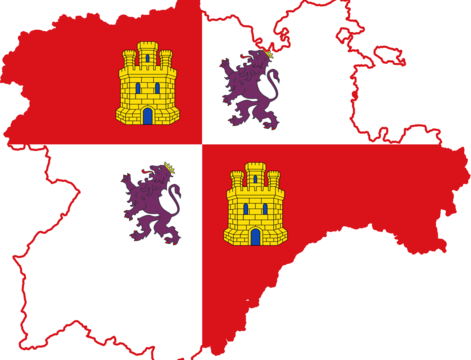
The Governing Council of Regional Government of Castilla y León approved the Regional Strategy for Alternative Energy vehicles in Castilla y León on the19th Nov
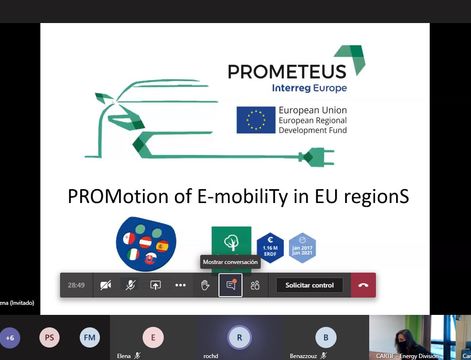
Regional Government of Castilla y León participated as a speaker in the Webinar "Mobility Workshop", organized by CARTIF Technology Center.
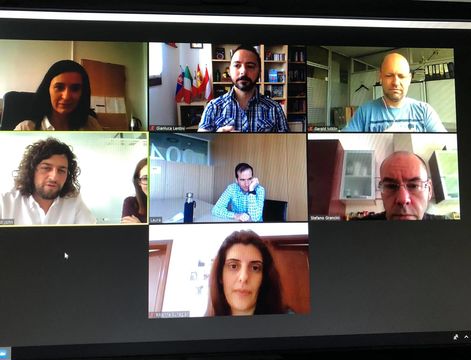
The Prometeus partners have met online to discuss the implementation of the Regional Action Plans.

Input from Transport Malta on electric mobility and the covid-19 crisis.

Input from Castilla y Leon on the challenges the covid-19 crisis is imposing on electric mobility.

The Prometeus video is now available on the website.
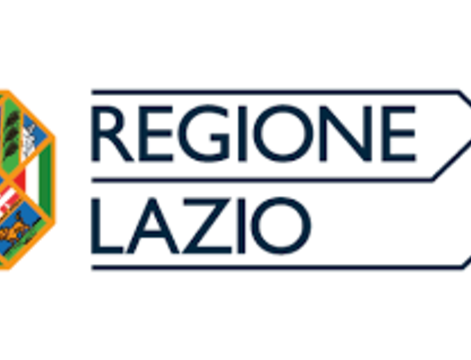
The Region of Lazio has completed its first Action Plan monitoring step.
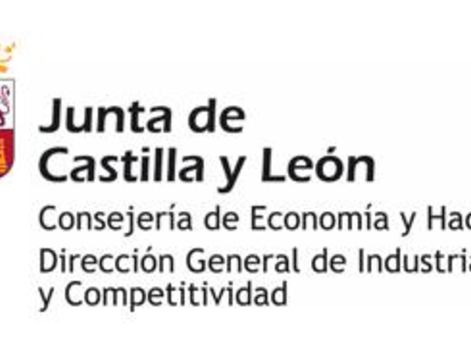
First monitoring phase - Action Plan implementation in Castilla y Leon

The web-based Logbook helps partners to organise and monitor the Action plan implementation activities.